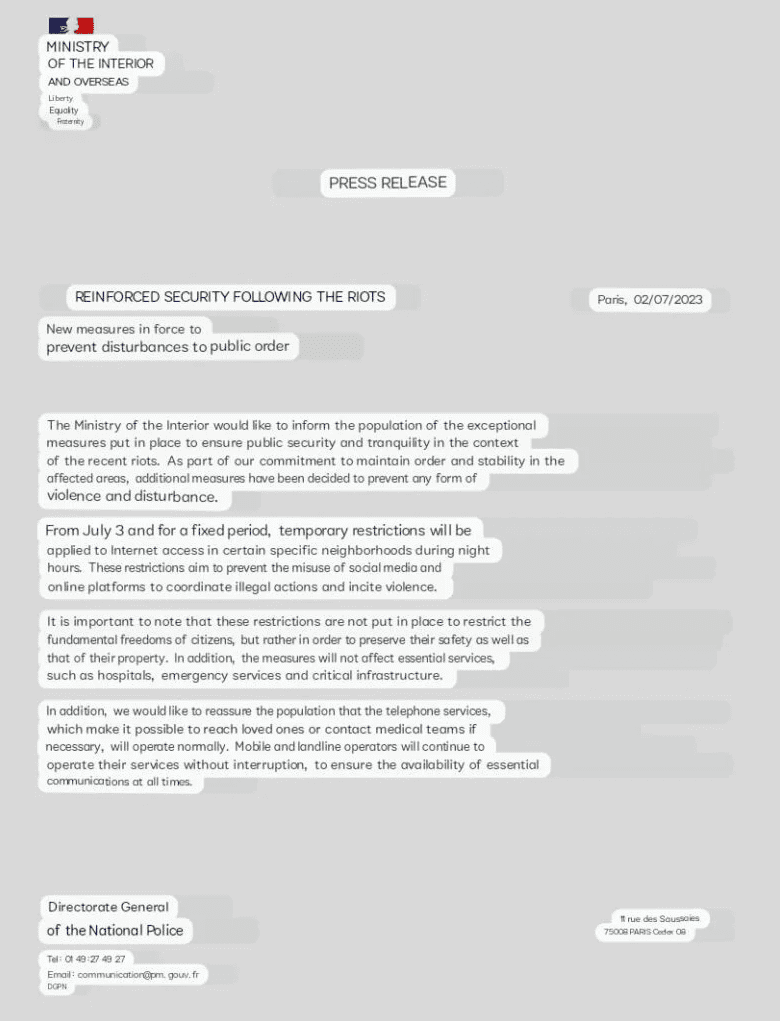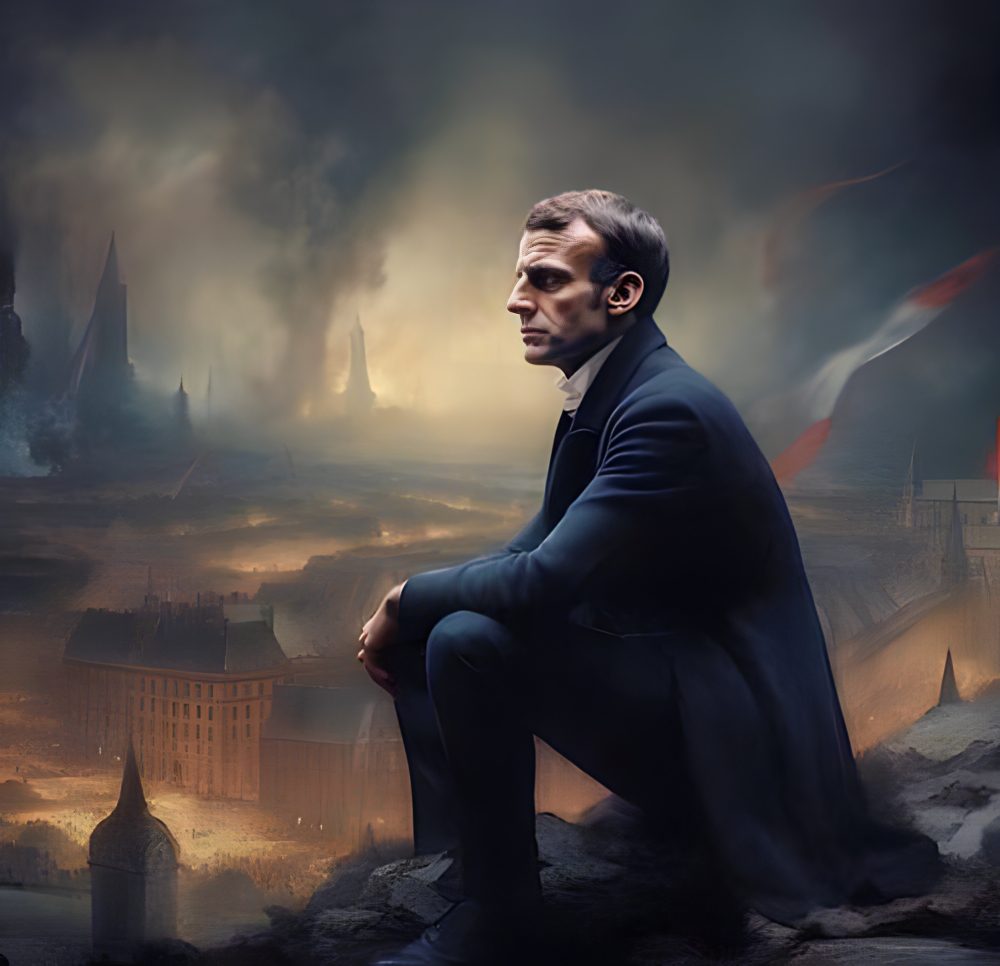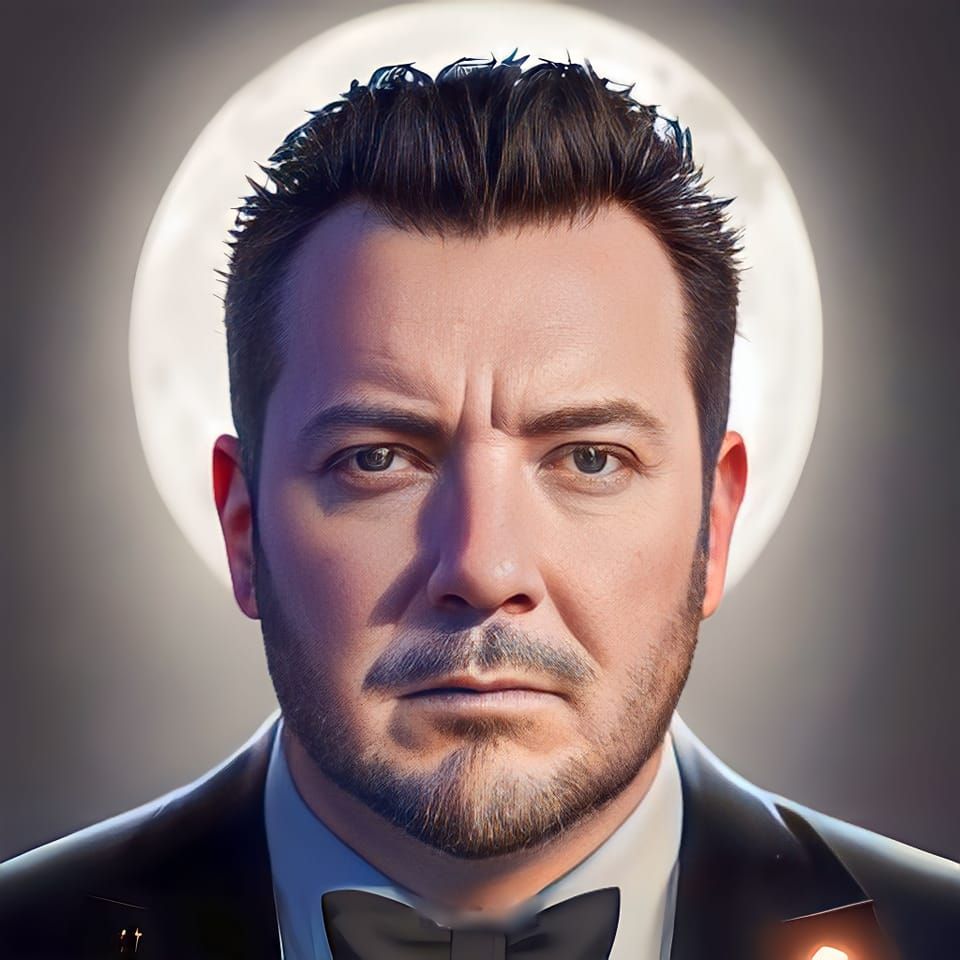France is burning, and President Emmanuel Macron is fanning the flames at social media and video games, blaming them for the country’s escalating riots. A cry for censorship is ringing through the hallowed halls of the Élysée Palace. Will France’s Internet go dark? Can free speech survive this unprecedented assault? Will the gamer be the new public enemy in Macron’s France? The future of free expression hangs in the balance.
France, a country steeped in a history of revolution, finds itself once again engulfed in the fire of civil unrest. Riots, sparked by the fatal shooting of a teenager, have erupted into a national crisis. Amid the turmoil, an unexpected adversary has emerged in the eyes of President Emmanuel Macron: digital platforms and video games.
With the rapidly spiraling situation, Macron’s move to lay blame on social media and video games for the spread of the riots is both dramatic and controversial. His request to social media giants to delete “sensitive” content related to the riots has raised significant concerns. The President’s assertion that these platforms have played a “major role” in recent events has ignited a debate on the potential erosion of free speech in the country.
Further, his attempts to correlate the violence seen on the streets with the influence of video games paints an oversimplified picture of a complex issue. Critics argue this stance ignores underlying societal issues, focusing instead on an easy scapegoat. In reality, social media platforms and video games are not ancient entities, and their roles in societal upheaval have always been debatable.
In addition to Macron’s finger-pointing at technology, he calls for parents to bear responsibility for their children’s actions. He claims that many of those involved in the riots are “young or very young,” placing the burden on families rather than the state. While parental responsibility is essential, critics argue that such assertions sidestep the multifaceted causes of civil unrest.
Meanwhile, the French Minister of the Interior announced plans to restrict internet access in certain areas, aiming to prevent the use of social media for organizing violent activities. This move raises more questions about the preservation of free speech and the transparency of the government in times of crisis.


As these proposed measures of censorship loom, France’s landscape becomes one of precarious balance between security and liberty. It evokes concerns that the push to prevent violence may also serve as a convenient tool for controlling narratives and limiting dissent.
In the midst of this volatile situation, Marine Le Pen, Nationalist politician and Macron’s rival, delivered a stirring national address. She denounced the rising violence and accused politicized actors of morally exonerating the criminal acts propelling the country into chaos. Le Pen called for the return to republican order through sectoral curfews and, if necessary, the declaration of a state of emergency. She even requested President Macron to convene a meeting with all parties represented in the National Assembly to discuss this crisis.
@TranslateMom English
— Nepotism Supporter (@shrekmaxxer) June 30, 2023
As the fires of civil unrest continue to rage in France, Macron’s course of action has triggered a discourse about the delicate balance between security, free speech, and personal liberties. With the Internet on the brink of a shutdown and the sword of censorship hanging over digital platforms, the preservation of free speech in the era of unrest remains uncertain. The question persists: is the loss of freedom a price worth paying for security? The world watches as France grapples with this pressing conundrum. The outcome will undoubtedly echo in the annals of free speech and digital rights for years to come.



